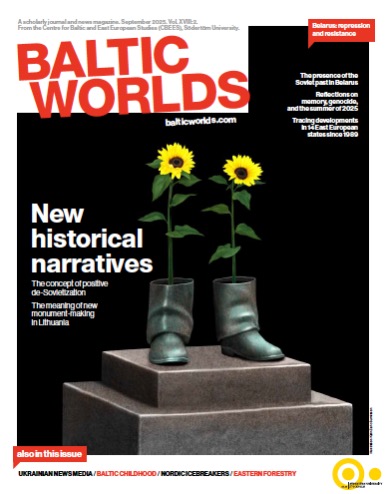Art in protest. Pussy Riot in Mordovia, Russia
Lusine Djanian and Alexey Knedlyakovsky at the Bakhtin workshop shared their experiences from the art protest in 2013, in the Russian Republic of Mordovia, the historical place for those serving sentence or being exiled. And it was in this region where Bakhtin spent many years of his life when he was not allowed to live in Moscow. The protest was a direct action to support the demands of Pussy Riot-member Nadezda Toloknnikova, who was serving her sentence in prison for the action in the Moscow Cathedral of Christ the Savior.

 Issue 2025, 2:
Issue 2025, 2: